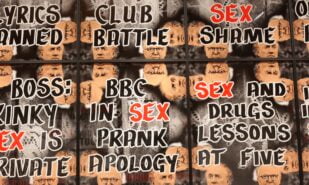Over the past few days, Keir Starmer, the leader of the Labour Party, has made a series of unexpected maneuvers, resulting in him landing on the front pages of the mass media as a supporter of Thatcher. All of this is part of a multi-step plan aimed at changing the image of the Labour Party, its economic position, and electoral attractiveness. But is his plan working?
Bad political omens: Starmer spoke warmly of Thatcher
| Author | |
|---|---|
| Category | Columnists, People, Town |
| Date | December 8 2023 |
| Reading Time | 2 min. |
Bad political omens: Starmer spoke warmly of Thatcher
In a Sunday Telegraph column, Starmer spoke kindly of former Conservative Prime Minister Margaret Thatcher, acknowledging her commitment to her “mission” and entrepreneurial direction. Without directly endorsing Thatcher’s actions during her premiership, he attempted to balance on the political tightrope, seeking to avoid alienating the left wing of the Labour Party – the staunch critics of the “Iron Lady.” This unexpected statement became another step for Starmer in reevaluating the Labour Party’s political line and distancing himself from the left legacy of Jeremy Corbyn. Positioning himself and the party as a centrist alternative, he demonstrated openness to ideas traditionally associated with the Conservative Party.
Nevertheless, despite the measured praise for Thatcher, Starmer’s statements sparked a flurry of criticism within the Labour Party. For example, Member of Parliament Ian Byrne actively opposed Starmer’s statements and cited the ongoing negative consequences of Thatcher’s policies for the working class. Known for his left-leaning sympathies, Byrne called Starmer’s speech a betrayal of the principles that traditionally defined the party’s line. Political opponents also seized the opportunity to criticise Starmer. In particular, leaders of the Scottish National Party called his loyalty to Thatcher a blatant insult to the people of Scotland, who bore the brunt of Thatcherism.
In essence, Starmer’s statement not only deepened the divide between the parties but also created problems that Labour will have to address to improve its image during the electoral campaign. So, what was it, and more importantly, why? The answer lies in the economic realm. A report recently published by the independent expert group, The Resolution Foundation, paints a bleak picture of the situation in the UK – the next 15 years are projected to see stagnation, low economic growth rates, and increased inequality.
Both Chancellor Jeremy Hunt and Labour leader Keir Starmer spoke at the report’s presentation. While Chancellor of the Exchequer Jeremy Hunt, responding to experts’ warnings, proposed a series of measures that he believes could stimulate economic growth, Keir Starmer, on the contrary, took a more restrained position and stated that economic development would not require significant additional spending. “Anyone expecting the taps to be opened after Labour’s victory will be disappointed,” he said. In his opinion, it is necessary to reform planning laws, facilitate the construction of new homes, develop a new industrial strategy, invest in skills, and create a national wealth fund.
It sounds vague! But clearly, this step is aimed at creating a positive image of the Labour Party for the audience, which is ready to take responsibility for the country’s finances. Starmer is clearly trying to gain the trust of voters. However, the leader’s restraint on economic reform issues may face internal criticism from party members advocating for a decisive rejection of harsh economic measures. Starmer’s lack of specific financial solutions could also lead opponents to doubt the sincerity of Labour and their ability to change the disastrous economic trajectory set by the Conservatives.
Anyway, Keir Starmer’s ambiguous actions, including the unexpected nod to Margaret Thatcher, currently demonstrate only one thing – a desire to attract a portion of traditionally conservative-minded voters. Internal discord and criticism from other parties indicate potential difficulties for Labour in the upcoming election campaign.




